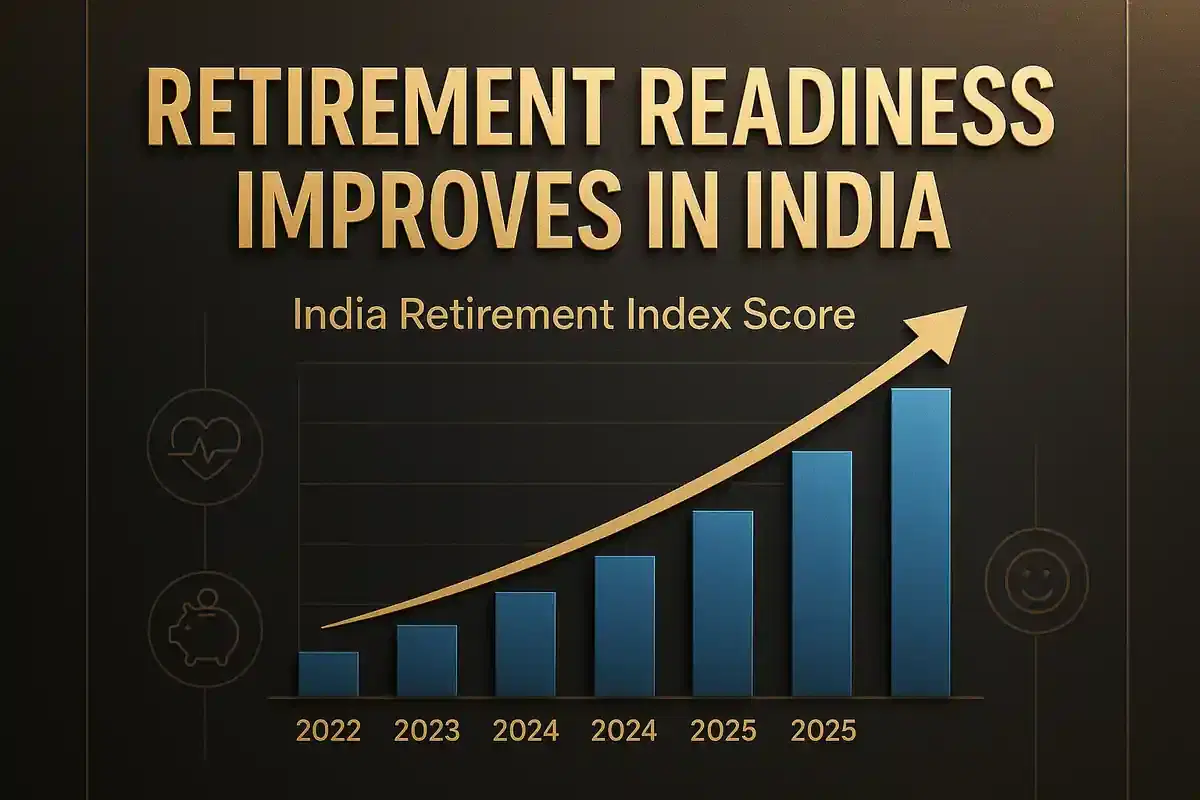India's Retirement Preparedness Improves, But Savings Gap Persists
Personal Finance
|
29th October 2025, 11:20 AM

▶
Short Description :
Detailed Coverage :
India's retirement preparedness has seen a notable improvement, with the national India Retirement Index Score (IRIS) increasing from 44 in 2022 to 48 in 2025, marking a 9% rise over three years. This progress, according to the India Retirement Index Study (IRIS 5.0) by Axis Max Life Insurance and Kantar, is supported by enhanced health habits, higher insurance ownership, and increased awareness of financial planning.
The study highlights that half of urban Indians now recognize the importance of starting retirement planning early, ideally upon beginning their careers. Despite this awareness, a substantial gap remains between planning and action, as only 37% have managed to accumulate even a quarter of their desired retirement fund. Financial sufficiency continues to be a concern, with approximately 63% of respondents anticipating their savings will last less than 10 years post-retirement, and a common assumption of ₹1 crore being sufficient, which analysts deem an underestimation.
Health readiness has shown the most significant improvement. However, emotional well-being lags, with prevalent fears of loneliness, financial dependence on family, and concerns about climate change's impact on retired life.
Segmental analysis indicates women are marginally ahead in preparedness, while gig workers show growing financial independence but limited access to structured retirement benefits. Return migrants, studied for the first time, exhibit financial confidence but weaker health engagement.
Regionally, East India leads in overall preparedness, balancing financial, health, and emotional factors. West India has shown strong gains in financial sentiment, boosted by increased investments in stocks and real estate.
Impact This news provides valuable insights into consumer financial behavior and long-term savings trends in India. It can influence financial services companies' strategies and highlight areas for policy intervention. The findings suggest a growing awareness but a need for better execution in personal finance, which could lead to increased demand for investment and insurance products over time. Impact Rating: 7/10
Difficult Terms: * **India Retirement Index Score (IRIS)**: A metric developed by Axis Max Life Insurance and Kantar to measure how well Indians are prepared for retirement across financial, health, and emotional aspects. * **Retirement corpus**: The total amount of money saved and invested that an individual expects to live on during their retirement years. * **Gig workers**: Individuals who work on a freelance or temporary basis, often through platforms or project-based assignments, rather than being employed full-time by a single employer. * **Return migrants**: People who have previously migrated from their native place to another region (often urban) for work or other reasons and have now returned to their original place of residence. * **Holistic approach**: A strategy or method that considers all aspects of a situation or problem, rather than focusing on just one or a few parts.